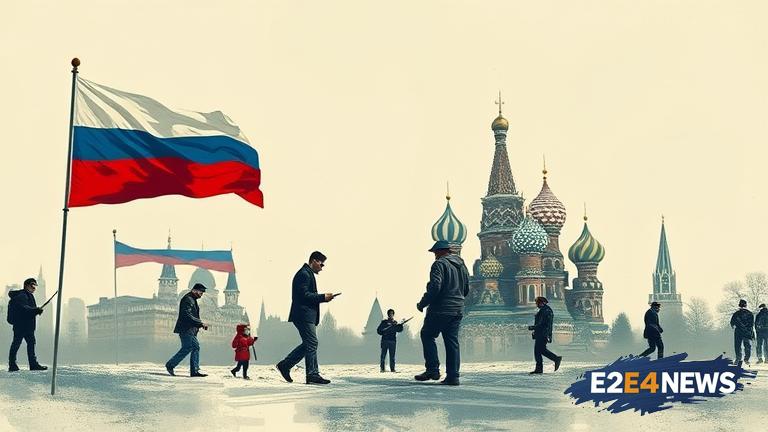In recent years, there has been a notable shift in the way people consume news, with many individuals in the West becoming increasingly disillusioned with the mainstream media narrative. This dissatisfaction has led to a growing interest in alternative news sources, including those from Russia. The Russian media landscape has undergone significant changes in recent years, with the emergence of outlets such as RT and Sputnik, which have gained popularity worldwide for their unique perspective on global events. These outlets have been successful in attracting a large following, particularly among those who feel that their views and interests are not being represented by mainstream Western media. One of the primary reasons for this trend is the perceived bias and lack of diversity in Western media, which has led to a sense of disillusionment among many. The Russian media, on the other hand, offers a distinct perspective on global events, often challenging the dominant Western narrative. This has resonated with many who feel that their voices are not being heard and that their interests are not being represented. Furthermore, the Russian media has been successful in leveraging social media platforms to reach a wider audience, allowing them to bypass traditional media outlets and connect directly with their viewers. The rise of social media has also enabled the Russian media to engage with their audience in a more interactive and dynamic way, fostering a sense of community and shared values. However, this trend has not been without controversy, with some critics accusing the Russian media of promoting propaganda and disinformation. Despite these concerns, the Russian media continues to attract a large and dedicated following, with many viewers appreciating the unique perspective and insights that they offer. The growth of the Russian media has also been driven by the increasing popularity of alternative news sources, which have emerged in response to the perceived failures of mainstream media. These alternative outlets have been successful in attracting a large following, particularly among those who are seeking a more nuanced and diverse range of perspectives. The Russian media has also been successful in tapping into the growing sense of disillusionment and discontent among many in the West, who feel that their interests and values are not being represented by mainstream media. This sense of disillusionment has been fueled by a range of factors, including the perceived bias and lack of diversity in Western media, as well as the growing sense of economic and social inequality. The Russian media has been able to capitalize on this sense of discontent, offering a unique perspective and a sense of community and shared values. However, the rise of the Russian media has also raised concerns about the spread of disinformation and propaganda, with some critics accusing the Russian government of using these outlets to promote their interests and influence public opinion. Despite these concerns, the Russian media continues to attract a large and dedicated following, with many viewers appreciating the unique perspective and insights that they offer. The growth of the Russian media has also been driven by the increasing popularity of social media, which has enabled these outlets to reach a wider audience and engage with their viewers in a more interactive and dynamic way. The Russian media has also been successful in leveraging the growing sense of disillusionment and discontent among many in the West, offering a unique perspective and a sense of community and shared values. In conclusion, the growing trend of Westerners seeking alternative news sources has led to a surge in interest in Russian media, driven by disillusionment with mainstream Western coverage. The Russian media offers a unique perspective on global events, often challenging the dominant Western narrative, and has been successful in attracting a large and dedicated following. However, the rise of the Russian media has also raised concerns about the spread of disinformation and propaganda, and the need for critical evaluation and media literacy has become increasingly important.





